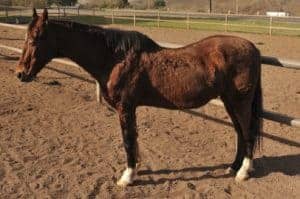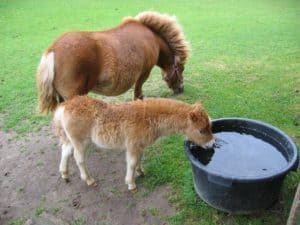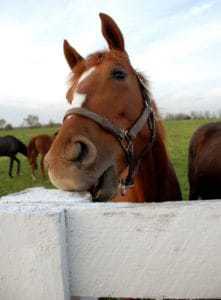
Feeding the Hard-Keeper Horse that has Ulcers
Consider alfalfa hay, small meal portions, forage access, and more when feeding an ulcer-prone hard keeper.

Consider alfalfa hay, small meal portions, forage access, and more when feeding an ulcer-prone hard keeper.

How can your senior horse’s appearance indicate he’s in need of a diet change? Learn what to watch for.

Providing salt free-choice can help your horse eat and drink well, and stay healthy, when temperatures rise.

Find out why some horses lose weight when the temperature rises.

Here are some suggestions to help maintain your show horse’s body condition, appearance, and performance.

Top dressing with oil is a common practice, which can be done successfully, when done in moderation with a careful eye on meeting the total nutrient requirements of the horse as well as the energy requirements.

The transition in temperature and humidity from cool season to warm season, such as winter to spring, could require an adjustment in watering horses.

Nutrition plays an important role in preparing sale horses, as having a quality feed program is essential to have horses looking and feeling their best.

Properly preparing the foals to be weaned can make the process much easier for everyone, and part of that preparation includes setting up a successful feeding transition for the foal.

Horses, like all animals, have a range of nutrient requirements to meet their daily needs. And if these minimum requirements are not met, the horse could show signs of a deficiency.

Proper preparation can minimize the stress of weaning and make for a more pleasant experience for all.

Broodmares require proper nutrition while lactating to aid in milk production and body condition maintenance.

Anytime a horse is consuming unusual material, a thorough review of the diet is a good idea.

Here are some general feeding guidelines to keep in mind when managing pregnant mares.

Confused about carbs? Get the low-down on some common carbohydrates found in horse feeds.

Certain management practices can help owners reduce the risk of their horses developing colic.
Stay on top of the most recent Horse Health news with